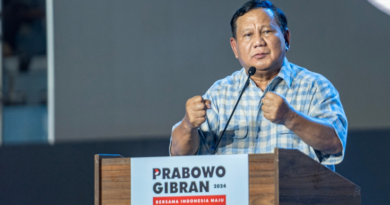Stellantis CEO Carlos Tavares’ almost 60% jump in pay to $39m slammed by investors 2 years after previous compensation plan rejected
Stellantis NV Chief Executive Officer Carlos Tavares’ jump in 2023 remuneration is getting pushback as the Jeep maker pursues deep job cuts and tough savings goals in the EV transition.
At Tuesday’s annual general meeting, advisory firms Glass Lewis, Proxinvest and Institutional Shareholder Services are urging investors to vote against approving the €36.5 million ($39 million) total compensation package. The pay plan, up almost 60% from 2022 levels, makes Tavares the most highly paid carmaking CEO among incumbent manufacturers.
Tavares’ total compensation includes a new incentive award worth €10 million tied to meeting electrification and software goals, at a time Stellantis is coming under increased scrutiny in Italy and the US due to ongoing job cuts. Two years ago, investors rejected his remuneration plan in a non-binding vote after opposition in France.
“Investors, in particular European ones, are becoming increasingly sensitive to social aspects of corporates,” said Charles Pinel, CEO of Proxinvest. “They are even willing to accept lower dividends or to make efforts if the social context is complicated.”
In Italy, the company has been mired for weeks in a controversy with Prime Minister Giorgia Meloni’s government due to plans to reduce headcount and shift production of electric vehicles to lower-cost countries such as Poland. Stellantis and other mass-market carmakers including Renault SA and Volkswagen AG are struggling to profitably make affordable EVs, which is crucial to compete with Chinese rivals and help reignite slowing EV uptake.
Last week, thousands of Italians joined striking workers near the carmaker’s base in northern Italy. Stellantis is targeting reduction of its Italy workforce by 8%, or roughly 3,700 positions, according to the Fiom labor union. In the US, the company has initiated the termination of thousands of supplemental employees in Detroit, Toledo and Ohio, and is eliminating more positions in France, according to local unions.
ISS noted that Stellantis executives enjoy “generous” benefits including personal use of corporate aircraft for the executive chair John Elkann, while CEO Tavares profits from tax equalization “without clear disclosure.”
Stellantis’ tough measures while raking in record profits have rankled workers. They’ve complained about the cuts and increased work load, but also of unsanitary conditions in certain plants, a lack of work gear and insufficient heating.
The headcount reductions, which contrast with increasing executive pay and a higher dividend, may raise questions about remuneration practices “in addition to causing potential reputational risk for the company,” Glass Lewis wrote in a report last month.
Tavares, 65, is seeking to make Stellantis leaner to endure in the shift to EVs. Investors have rewarded the CEO’s strategic moves, leading to a roughly 60% share price jump last year. The stock rose even as the company lost ground to rivals in several countries, including France and the US, according to forecaster Jato Dynamics.
“There’s a contract between the company and myself, just as there are contracts for soccer players and for Formula 1 drivers,” Tavares told reporters visiting a plant in northern France on Monday. “Also, 90% of my salary depends on the company’s results — this goes to show they aren’t that bad.”
Glass Lewis specifically objected to the extra €10 million incentive award for work that it views as “intrinsic” to an executive’s duties.
“We note that such a bonus is out of step with market practice,” the proxy firm said. It also was critical of some of the performance targets used by Stellantis to justify the package. “We question whether such targets represent an appropriate challenge for executives,” Glass Lewis added.
Stellantis’s annual meeting is set to start at 2 p.m. CET in Amsterdam.




